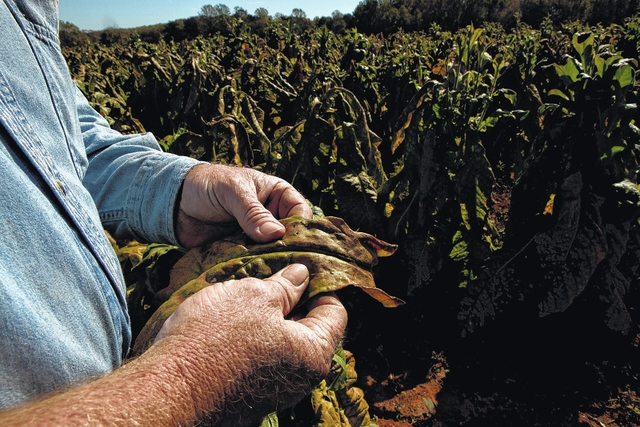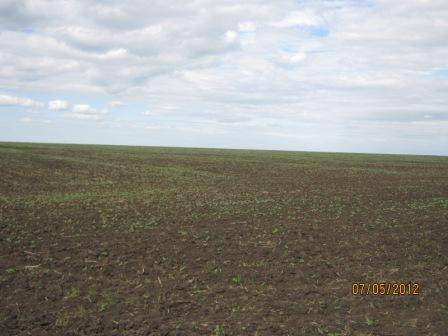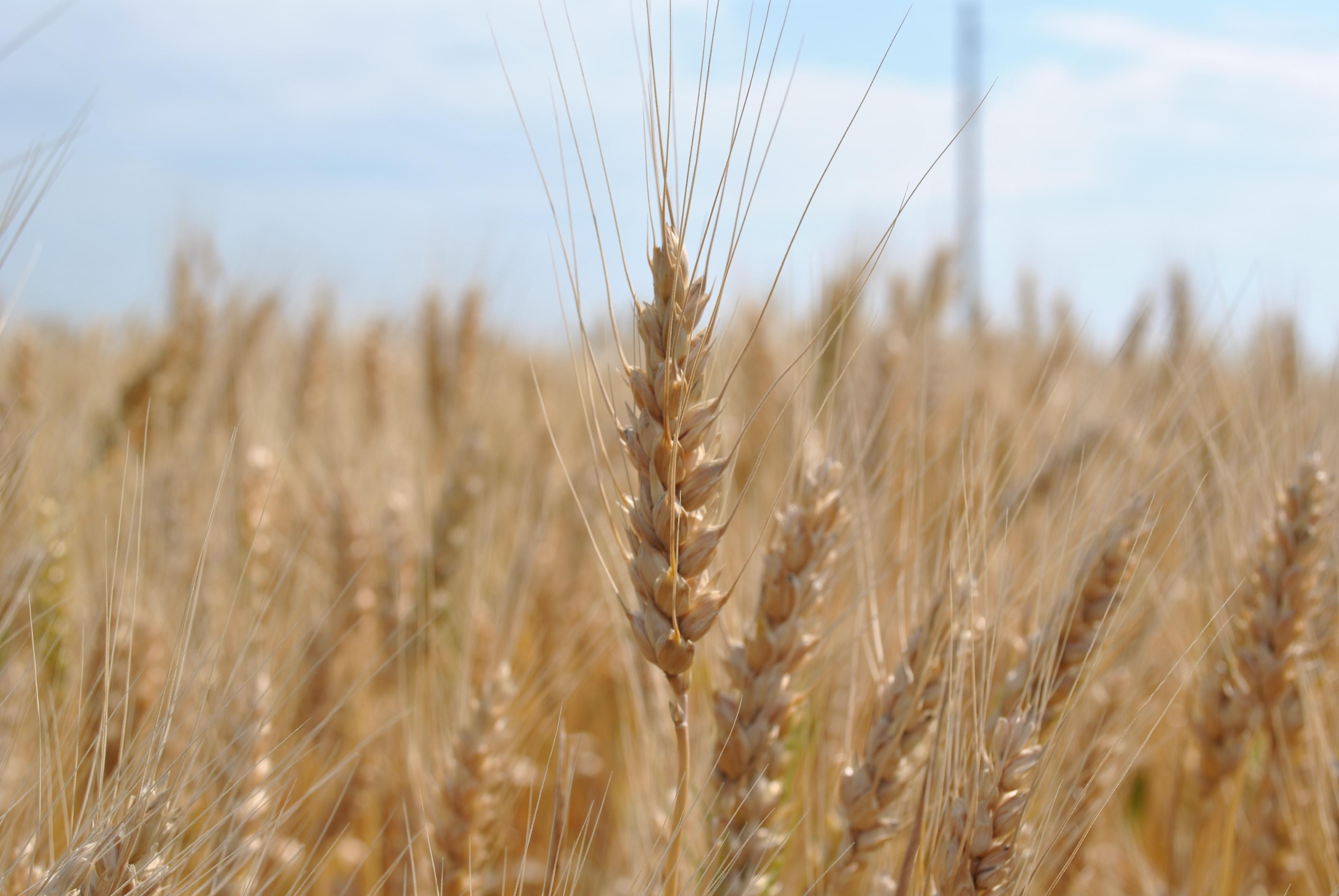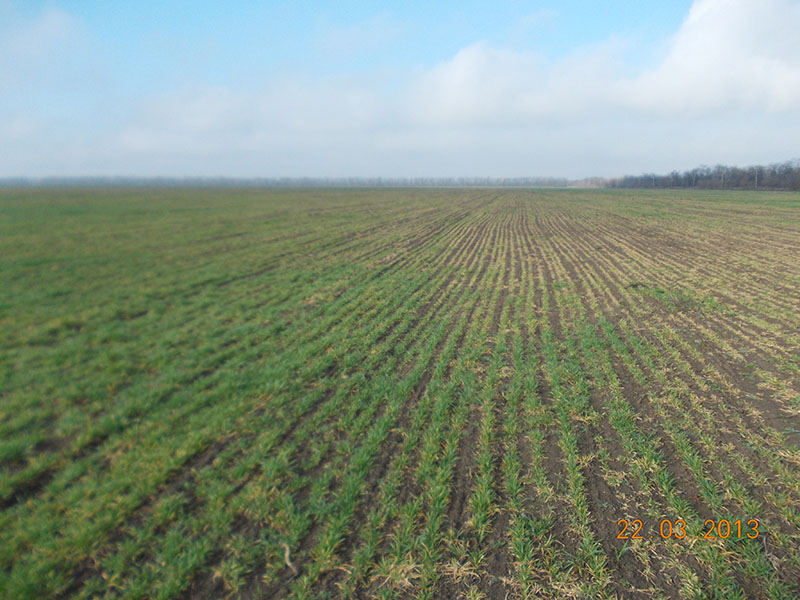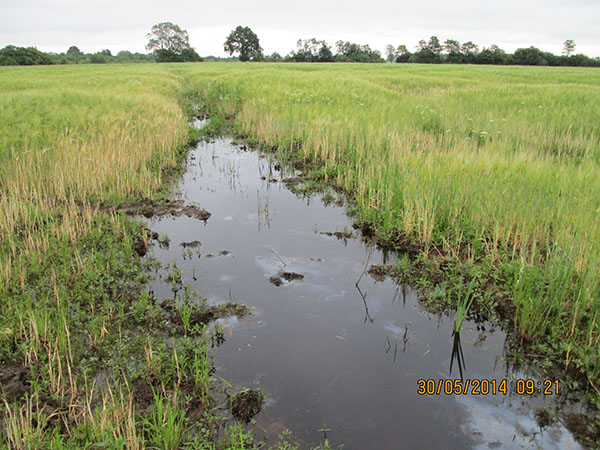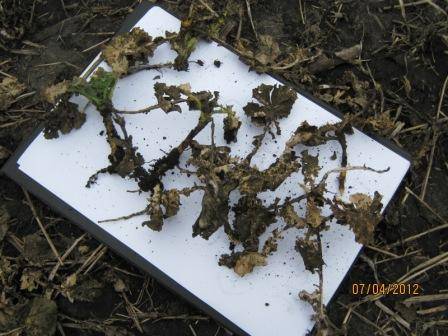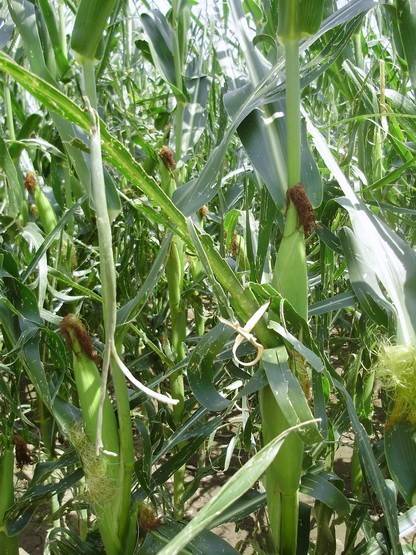USA - October freeze burns tobacco farmers in Surry County
Mother nature seemed to have conspired against Surry County tobacco farmers this year, with freezing temperatures Saturday and Sunday landing the final blow. Phillip Cave, a fifth generation farmer who with his son, farms about 50 acres of tobacco in Elkin and Dobson, said the trouble leading up to an $80,000 loss started months ago. “The whole story of this crop is extreme drought in May, June and July put the crop behind,” he said. Then came October’s rain. From Sept. 25 to Oct. 4 the crop couldn’t be harvested. “We had to sit in the house and watch the rain,” Cave said. “I could have gotten it done in three days.” When the rain finally did stop, Cave got busy with the harvest. “I heard the ice was coming,” Phillip Cave said. “I worked my hind end off.” Laborers worked 17 hours that Saturday. Cave didn’t get home until 2:30 a.m. “We don’t ever work crops on Sunday but we did this year,” he said. Cave did get about 11,000 pounds of tobacco harvested before the temperature dropped. The rest? “It’s ruined,” Cave said. “Tobacco can handle a frost. It can’t handle a freeze.” The frostbitten leaves won’t cure correctly. “They won’t take the heat, it won’t yellow,” he said. The stems bend instead of breaking, which means they can’t be separated from the leaves during processing. “You can’t hide it,” he said. Insurance issues Cave wasn’t the only farmer to be affected by the cold snap. “We have had several losses reported,” said John Petree, owner of Foothills Insurance, a crop insurance agency based in Rural Hall. But Cave’s extra work harvesting the crop may hurt him. Although about six miles separate the tracts of land where Cave had harvested the tobacco before the frost and where it remained exposed in the field, they are listed under the farm serial number with the Farm Service Agency and so are considered one farm for insurance purposes. Cave couldn’t claim a loss. “I missed the whole state fair and still lost 70-80 thousand dollars,” Cave said, noting that he missed out on watching his kids show cattle — and his Hereford bull be named grand champion. Low demand, low prices When the farmer got his harvest to market, the tobacco company gave Cave a lower grade than he thought it was worth, offering him $1.40 a pound instead of about $2 per pound. “That’s not a fair price,” he said, blaming markets so flooded by low demand and an increase in foreign imports with making tobacco companies unable to pay a fair price for their contracts. And so, the buyers are assigning lower grades to higher quality tobacco as a way to drive the already low price down further. Demand was so low at the beginning of the season that Cave’s son, Preston, could not even get a contract to grow conventional tobacco. Preston Cave, a December 2014 graduate of N.C. State University, chose to grow organic tobacco for his first crop. Along with the higher demand and higher price for organic tobacco comes more work — and greater risk. With his crop also uninsured, “I lost about $8,000 Monday morning,” said Cave, who is getting married on Nov. 7. The year hadn’t been a good one for the Caves’ farming operation as a whole. Phillip Cave said his laying hens were picked up three weeks early, and that the drought hurt other crops such as corn and soybeans. “I don’t even want to walk into the soybean field,” he said. Preston said Brazil opening its markets to exports has driven cattle prices down as well as tobacco. But with the debt ratio lower on tobacco, that loss hurt the most. “Tobacco pays the bills,” Phillip Cave said. “It didn’t this year.” Admittedly still in shock from the frost loss, Phillip Cave said, “I’m thinking about selling. I didn’t tell him that yet,” pointing to his son. Preston Cave said he didn’t know if he would continue to farm the crop. “Do you stay here and take losses for four or five years or try to move on to something else?” The father and son had planned long term to use tobacco profits to expand their cattle operation. “That’s what we both love to do,” he said. Phillip Cave said, “We both love growing tobacco too. But not this year.” “There’s no guarantees in farming,” Preston Cave said. “We’re just gamblers. Gambling to feed the world.” Source - http://mtairynews.com


